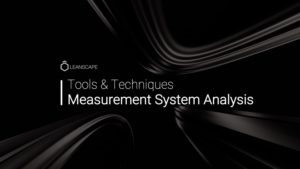A Kruskal-Wallis Test compares the medians of two or more groups. It is a nonparametric alternative to the ANOVA which means the data sample is not Normally distributed and do not have any obvious outliers.
In statistics, the Kruskal-Wallis test is a non-parametric method used to compare two or more independent groups. This test can be used when the assumptions of normality and homogeneity of variance are not met. The Kruskal-Wallis test is used to determine whether there is a significant difference in the median values of two or more groups. The null hypothesis for this test is that there is no difference in the median values of the groups.
Assumptions behind the Kruskal-Wallis Test
The Kruskal-Wallis test makes the following assumptions:
• The data are ordinal, interval, or ratio
• The dependent variable is continuous
• The independent variable has two or more levels
• The samples are independent
• There are no ties in the ranking of the dependent variable
Advantages of the Kruskal-Wallis Test
There are several advantages to using the Kruskal-Wallis test over other parametric tests, including:
• The Kruskal-Wallis test does not require the assumptions of normality and homogeneity of variance that other parametric tests do. This makes the Kruskal-Wallis test more robust than other parametric tests.
• The Kruskal- Wallis test can be used with small sample sizes.
Limitations of the Kruskal-Wallis Test
There are also some limitations associated with using the Kruskal-Wallis test, including:
• The Kruskal- Wallis test is not as powerful as other parametric tests, such as ANOVA. As a result, you may need a larger sample size to get an adequate power level when using this test.
How do I calculate a Kruskal-Wallis Test statistic?
The Kruskal-Wallis test statistic is calculated using the following equation:
H = (Σx i – μ)2 / (n – 1)
Where:
• H is the Kruskal-Wallis test statistic
• x i is the observed value of the ith observation
• μ is the expected value of the ith observation
• n is the number of observations
What are the null and alternative hypotheses for a Kruskal-Wallis Test?
The null hypothesis for a Kruskal-Wallis Test is that there is no difference in the median values of the groups. The alternative hypothesis is that there is a difference in the median values of the groups.
How do I interpret the results of a Kruskal-Wallis Test
Interpreting the results of a Kruskal-Wallis Test is relatively straightforward. You compare the value of the H statistic to a chi-squared distribution. If the value of the H statistic is greater than the chi-squared distribution, then there is a significant difference in the median values of the groups. If the value of the H statistic is not greater than the chi-squared distribution, then there is no significant difference in the median values of the groups.
Conclusion:
The Kruskal-Wallis test is a non-parametric method used to compare two or more independent groups. This test can be used when the assumptions of normality and homogeneity of variance are not met and can be useful when working with small sample sizes. However, it is important to keep in mind that this test may not be as powerful as other parametric tests. When deciding whether or not to use this test, consult with a statistician or other knowledgeable individual to ensure that it is the most appropriate method for your data set.




















